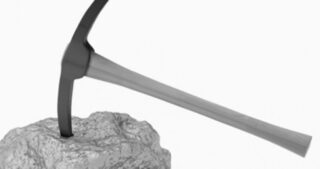Three very important factors in Omaha is position, stack sizes and the size of the pot - they have a very big influence on your actions. The first factor is out of your control and the second one is also pretty hard to influence, but to succeed in Omaha you need to learn pot control.
Pot control pre-flop
Omaha is usually played as pot limit (PLO). The most important aspect of pot control pre-flop is when to three-bet and when not to. Three bet in PLO usually means that a player has opened with a pot raise and another player re-raises pot. With a three-bet you build a sizeable pot already pre-flop and risk becoming pot-committed.
There are three important aspects when it comes to whether to three-bet or not. The first is off course what cards you are holding, the second is the stack sizes and the third and maybe most important - your position.
In early position like the blinds or UTG there are very few hands (if any) that you want to three-bet pre-flop. You have a very big position disadvantage here. Building a pot out of position can get you in lot of trouble, especially if the stacks are deep. Acting out of position on a trouble board is very hard and can be costly. It's different when you are short stacked. If you manage to get 2/3 of your stack or more in you can definitely three bet strong hands such as suited aces and even connected hands like KQJT or T987 (especially when suited).
Late position is a different story. Here you can three bet a wider range of hands (especially when playing short-handed). But be wary of UTG raises and only three-bet them with premium hands. Three-betting in late position has two benefits; you can either win the pot there and then or you'll be playing a larger pot with a position advantage (if nobody calls behind).
If somebody four-bets the person is usually really strong. What to do here depends. With deep stacks you can opt to call, especially in position. If you're holding aces just roll with it and put in a re-raise with the aim of going all-in on the flop if you have any chips left. Fold weaker hands, especially in bad position (but hey you shouldn't be three-betting or calling with weaker hands in bad position in the first place.)
Pot control post-flop
Say you flop a good hand or a decent draw. How to play these hands depends on how big the pot is in relation to the stack sizes. Let's take an example.
The flop comes 7s-8d-9s and you hold Jh-Th-6d-6s, a pretty shitty starting hand, but you have flopped the nuts! Let's get as much chips as possible in there, right? Well, as I said, it depends. This is a classic Omaha situation, you have flopped the nut straight, but without hardly any re-draws. This is a situation where you want to try to keep the pot size down. After a bet and a raise it's usually better to just call and see what the turn bring than to commit too much here. But if the pot is big enough it's not much you can do other than go for it. And if the pot is small enough your best bet is probably to fold and don't risk any additional chips if a bet and a raise has already been made.
The problem when you lack redraws on a flop like this is that it's not unlikely that someone has the same nut straight, but with a redraw to a higher straight, a flush or even a full house. To go all-in against a hand like that on the flop lets your opponent freeroll on your whole stack.
So if you lack re-draws, try to keep the pot size down on the flop, especially when you're in bad position. And sometimes when you're up against several opponents and the pot is small relatively the stack sizes a fold can be your best option.
The turn is a different story; the stacks have to be very deep to ever consider folding the nuts here. On the turn it's usually hard to keep the pot size down in PLO, so lots of times you just have to roll with it.
Conclusion
Be careful building when out of position, even very strong hands can be tricky to play. To keep the pot down never three bet in early position and proceed carefully with hands that lack redraws even when you hold the nuts at the moment.









